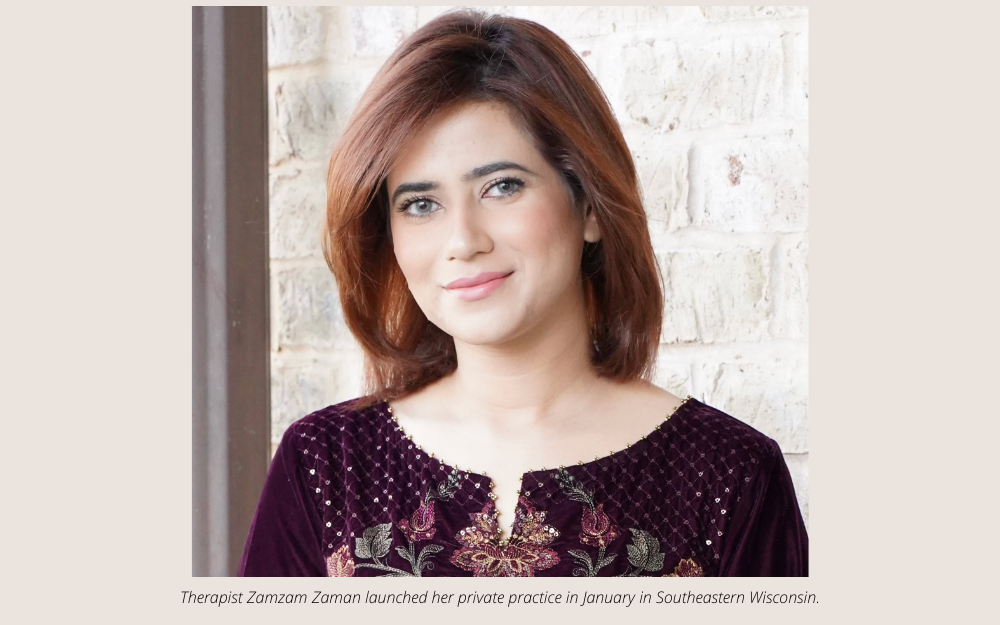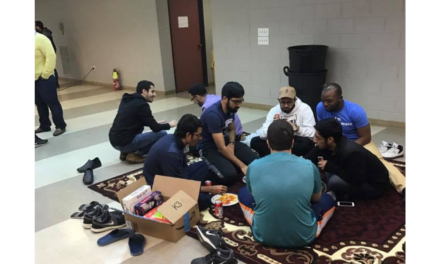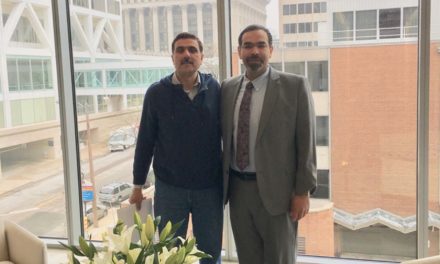In the dark days of winter, as the COVID-19 pandemic threatened to devastate our mental as well as our physical health, therapist Zamzam Zaman opened her private practice, The Counseling Institute, 405 E. Forest St., Oconomowoc. Now, like other therapists in Wisconsin, she is trying to keep up with demand.
The Centers for Disease Control and Prevention reported rising mental health conditions as COVID-19 infection rates spiked last summer. They included increased substance use, depression, anxiety and threat of suicide, especially among people 18 – 24.
The impacts of job loss, social distancing, isolation, grief and fear of an invisible, lethal virus will continue to have a significant impact on the human psyche, contributing to a secondary mental health epidemic, wrote Holly Schwartz, M.D. in an article in the June 2020 issue in The American Journal of Psychotherapy. Facing this level of vulnerability and uncertainty for months takes a toll. She expects as much as 10% of the population to meet the criteria for major depressive disorder and perhaps even more to experience post-traumatic stress disorder. Some will be grappling with mental health consequences for years to come.
Zaman’s multicultural background—she is a practicing Muslim who immigrated to the United States from Pakistan in 2018—equips her to help clients “reflect on the complexities of cultural assimilation … and are in search of a culturally informed counselor,” she explained in her listing in Psychology Today.
A National Certified Counselor (NCC) and an MA graduate of Northwestern University, Zaman has been a therapist at On Purpose Psyche in Oconomowoc since July 2019. She continues to be affiliated with OPP, as she launches her own practice. To protect her patients and family, Zaman currently offers telehealth from her home office in Oak Creek while working to meet the growing need for mental health support.
Over Zoom last week, from her tranquil home office, Zaman discussed the COVID-19 pandemic’s impact on our mental health, the role of her faith in her practice and her approach to therapy. Our conversation has been edited and condensed.
There’s no question our mental health system is strained amid the increased need caused by the pandemic a Jan. 8 article in WebMD reported. There were shortages of mental health professionals before COVID. What are you seeing?
There is a sense of need. People are saying to themselves, ‘I have tried to manage on my own and I just can’t.’ People are seeking help. In Wisconsin, there are waitlists to see counselors. Almost every therapist is full.
Everyone is at home. If we talk about couples – yes, we love our spouses, but we are not used to being at home with them all the time. It is porcupines in the winter – we want warmth and we want to be close, but it is prickly. The same with kids; we need a little distance. And if you live alone, it is isolating.

Zamzam Zaman is the owner and director of The Counseling Institute.
Yet, I see value in it. Things have been suppressed, pushed down because we storm through life, wanting to stay functional. When we have the time to be with ourselves and sit with ourselves, a lot of those things start to nag us. Things we have had buried inside for many years want to be acknowledged. Some of those pieces start to pop up.
What psychological conditions are you seeing in your practice these days?
I am doing work with a lot of folks who come in diagnosed with borderline personality. You will find a lot of different points of view in the field on this particular diagnosis. My particular take on it is that they are folks who have been through tremendous trauma – intergenerational, over time, complex. It could be something they are carrying with them for many, many years or something that happened recently as a very big event, something that really fragments them from the inside.
Does faith play a role in therapy?
Faith plays a huge, huge role. Seeking professional mental health help is separate, but connected, to your spiritual and religious affiliation.
I have clients who are Buddhist, Christian, Muslim and some don’t ascribe to any religion. My youngest client just turned 10 and my oldest client is 82. I always try to understand how are you connecting with the God you believe in or that power you believe in.
When people come in with whatever difficulty, mental health professionals try to gauge who and what you can rely on in your life—partners, friends, family, faith. Does work bring you a sense of peace and joy? Does your faith bring you a sense of peace, joy and empowerment? That’s because therapy will make things worse before things get better.
Someone may come in with hurt pieces of themselves deep in their minds, inside their gut, locked away and forgotten. Then we come into therapy, feel safe and brave, and suddenly we want to talk about them. All those wounds will be opened. Soon we are very overwhelmed by all our past traumas, things we have lived through but have not really processed. That can be scary.
I usually prepare my clients for that, telling them, ‘You are going to feel overwhelmed. It is part of the process. It is imperative you share what you are going through and that you stay the course and trust the process.’
That is where religion helps, whether you are Muslim or otherwise. If they have a spiritual connection with God, they can rely on it to get them through difficult times. If they are Muslim, I won’t assume they rely on that support system or see it as a support. I ask them.
It helps me as a professional to know what people, what ideologies, what experiences have helped you, what has worked in the past so we can rely on them again.

During the pandemic, Zamzam Zaman offers virtual counseling from her home office in Oak Creek.
You said that faith can be a source of conflict as well as a resource.
Yes, for example in relationships, faith may sometimes be a source of conflict. In marriage counseling, even if both are born and raised Muslim, even if they are from the same background racially, ethnically and geographically, there are still going to be differences. One may be a more moderate, more liberal Muslim while the other is more orthodox. There are a lot of issues around freedom and autonomy. It comes up in how they relate as a couple and in parenting.
Another example comes from folks in the LGBTQ community. Most organized religions are not very welcoming to people who are queer or trans, for example. For them to amalgamate their religion, something they want to hold on to, and their gender or sexual identity can be a source of a huge conflict. For a lot of folks, that is when they shun religion and move away from it, ‘if you don’t want me, I don’t want you.’
Issues also come up for adolescents coping with being in an environment where they lack representation. They find themselves code switching when they are at school or the mosque or at home. That may impact them in different ways.
Is there a stigma around mental health and therapy in the Muslim community?
In some pockets, there is acceptance and in others not. Some see it presented as a lack of faith, that if you are struggling with your mental health, maybe you need to strengthen your relationship with God. That can be very shame-inducing. Not only are you struggling with your mental health, you are also beating yourself up, a double whammy. Instead of seeking help and feeling accepted, it is knocking you down even more.
Thankfully we are moving away from that view. Many are realizing that seeing a therapist is like going to a doctor. When we need heart surgery, we don’t just pray instead. We go to a doctor.
You do come across people who are baffled by it, especially since there is no medicine involved. So how do we heal? What do you do? I get that question a lot.
I try to move them towards specificity about the issues they face. Then something clicks. ‘I am a Muslim, practicing, but I could still use some help. I can’t talk to my mom because she wouldn’t understand. I can’t talk to my husband about everything. I don’t want to burden my kids. So where do I go?’
They want to seek counsel from someone who is not going to judge or shame them.
I encourage them to think of their religion and their spirituality as part of their identity, however they want to define it for themselves. A lot of the Muslims I know personally and professionally come from very communal family backgrounds. There is a lot of collectivistic thinking and a lot of collectivistic living.
I would encourage them to find a balance that works for them between individuality and collectivism in a way that allows them to seek help, professional help when they want to, whenever they choose to. Just look for it and understand that there are people who will accept you as you are. It could be a friend or it could be an imam or it could be a mental health professional.
What do you recommend for someone who may want therapy but is not sure about it?
There is a bit of layman curiosity about therapy. What happens in therapy? What do therapists do? A lot of time when folks come in for therapy, Muslim or otherwise, they are very close to their rock bottom.
You can come to meet for 10 or 15 minutes to get a sense of the therapist and to learn how it is done, and then make up your mind. It is a safe way to get a taste without commitment.

Zamzam Zaman’s background has prepared her to serve clients seeking a culturally informed counselor.














